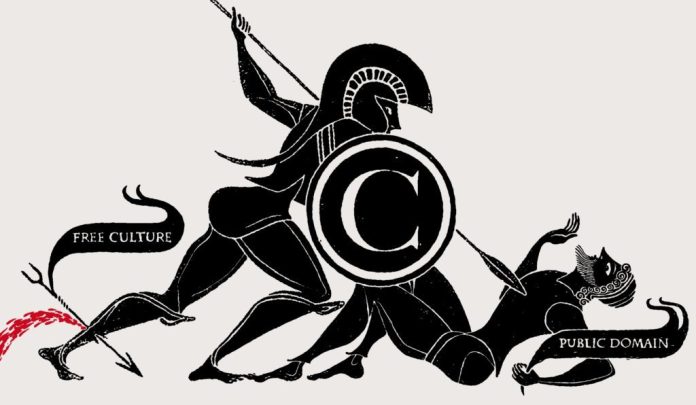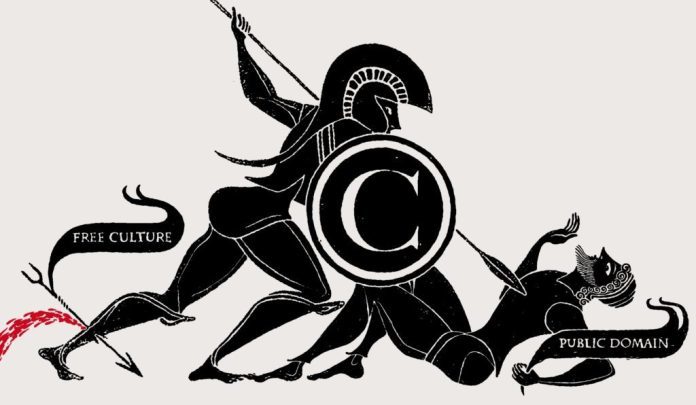
While staying clear of the vitriolic style of his bandmate, and haemorrhoid in the ass of the world, Gene Simmons, Paul Stanley continued the attacks on the illegal downloading of music. In essence, Stanley claims that downloading music is “just like stealing”, that it is morally wrong and that “it hurts people”.
To his credit, Stanley’s words are quite measured, at least compared with the otherwise fatalistic rhetoric that plagues the “copyright wars”. The problem is that even within his kind-er approach, he is off the mark.
Stanley (falsely) claims, just like Simmons, that nowadays bands are unable to reach the “pot of gold” with their music. He cites the case of Radiohead, whose 2007 album In Rainbows didn’t make any money because it was released as “pay what you want”. This would, of course, be terrible news, if it wasn’t because it’s absolute bullshit. As Thom Yorke, singer of Radiohead, said:
“In terms of digital income, we’ve made more money out of this record than out of all the other Radiohead albums put together, forever — in terms of anything on the Net. And that’s nuts.”
Since Stanley demonstrates that he’s not really about fact-checking, he went on to say what Radiohead did was stupid and that they would probably never do it again.
Well, let’s compare.
You could go on the internet and pay NOTHING to get Radiohead’s album. And I mean NOTHING, not a single cent. And yet, over 1.5 million people decided to buy the CD version of the album and pay the full price. Compare that to Kiss, whose 2012 album Monster, has barely sold over 200,000 copies.
Who was the stupid one?
The problem for Stanley, and that also affected Simmons, is that they refuse to accept the winds of change. They love the way in which they managed to make their money for many years, and refuse to accept that people simply do not want to continue paying the same amounts they paid before, and that they expect more from the content they purchase. Whether they (or I) like it or not is beyond the point. Opposing this change is just as useful as trying to empty the sea using a bucket.
As for the moral reason argued by Stanley, we can certainly concede that there’s room for debate. Whether we like it or not, laws all around the globe are clear when it comes to using copyrighted material and, as such, simply downloading a copyrighted work is not legal. The issue here, however, is determining whether there is a real moral justification for our current copyright system, and whether actions that might threaten it can simply be seen as “theft”.
In order to answer this question it is useful to go back in time and review the origins of copyright, that is why such a right exists. Despite what you might think, Copyright was never intended to benefit the authors of the work, but actually the rest of people, by establishing an incentive for authors to create new works. Thanks to this right, authors would receive a limited privilege to exploit their creations for a certain period of time, while society would benefit from the use of those creations. In the words of Justice Jon Paul Stevens in the 1984 case of Sony Corp. v. Universal City Studios, copyright is not “designed to provide a special private benefit. Rather, the limited grant is a means by which an important public purpose may be achieved. It is intended to motivate the creative activity of authors and inventors by the provision of a special reward, and to allow the public access to the products of their genius after the limited period of exclusive control has expired” (Emphasis added).
So, an essential element of Copyright was its inherently temporary nature; authors would create a work, they would be able to exploit it exclusively for a limited period of time, and after that time had expired their works would become part of the public domain. Although this temporary nature continues to exist (in paper at least), it is so different from what it was in the beginning, that it is simply unrecognizable and has created a de-facto eternal Copyright term. The “heroes” in Stanley’s mind, are those who have privatized knowledge and culture to the point where we can easily speak of censorship-by-copyright.
When attacking the “immoral” acts of those who download music, Stanley defends the actions of Lars Ulrich and all of those who decided to sue illegal downloaders. Considering that these are the people who sought millions in reparations from people who downloaded as little as 24 songs, and who demanded the girl scouts pay licensing fees for singing campfire songs, perhaps Stanley is not in a position to speak of morals in this topic.


Pretty insightful discussion. I was talking with my band mates about the changing face of the music industry, spurred by an article about how 2014 has not had a single platinum album. http://www.deathandtaxesmag.com/229695/2014-is-first-year-ever-with-zero-platinum-certified-records/
As that article itself mentions, part of it comes from the fact many people now buy individual songs and not whole albums. Also, you have to account for streaming services and, of course, Youtube which, even though provides revenue (via ads), does not count towards “sales” records.
What the industry is doing is mostly just trying to paint a sinking business model as a negative things, instead of understanding that it’s time to change it.